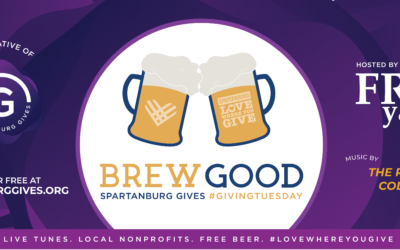Written by Erin Lachance (Wofford ’23)
The Hub City Animal Project is a Spartanburg County non-profit that encourages animal welfare groups, veterinarians, and municipalities to collaborate in addressing the root issues of animal homelessness in order to create a long-term change. Lora Hodge, co-founder of the Hub City Animal Project, has also spent her time working as vice president of development at Spartanburg Humane Society. During an interview with her, she stated that it would be a great day if just four animals were adopted. This was a stark contrast to the twenty-two animals that were being dropped off daily. “This wasn’t a sustainable model,” Lora stated, and she saw a real need to address this issue. Co-founder Valerie Barnet was invited for a tour, and the two women began campaigning together and discussing ways to assist local organizations in addressing the root problems of animal homelessness in attempts to minimize it as much as possible. Hub City Animal Project raises money and has events in order to then donate to other local animal organizations who are willing to implement programs that also address these issues.
There are a lot of contributors to the root cause of animal homelessness. Some of the factors highlighted by Lora are things such as socioeconomic issues, lack of access to resources, and general knowledge.When interviewing Lora, she stated that “the biggest risk to animal suffering in general across the country is lack of spay/neuter and lack of access to vet care.” The why or the how this is happening can be identified by a number of different things and so many factors contribute to this singular issue. Many people do not have the expendable income to spay/neuter a pet due to circumstances such as losing a job, which can make the procedures impossible to afford. When analyzing this issue and how it directly affects the Southern part of the United States, Lora mentioned how cultural practices and beliefs may be contributors. She drew on her own background, sharing that when she was a young girl, many people did not spay or neuter their animals and because of this, they were running around neighborhoods. This was happening even long after people in other regions throughout the country started the practice of spaying and neutering. In the South, hunting dogs were prominent and spay/neuter was just not a priority. Times have changed a lot since then, but there is still a long way to go.
While efforts in the area are still much needed, the Hub City Animal Project has made resources and information more accessible to members of the Spartanburg community and everyone has a chance to do their part. Some of the specific ways that Hub City Animal Project has aimed to support the community and the animals are:
1. Advertising and making community members aware of affordable spay and neuter clinics, such as Animal Allies, who do spay/neuters for dogs and cats. They perform these surgeries at a much lower cost than a traditional veterinarian clinic.
2. Connecting members of the community with partners who may be able to offer financial assistance for spaying and neutering animals. These partners can be found on their website.
3. Offering educational resources about the problem of animal homelessness in the community, offering educational materials for pet owners regarding training, the importance of spay/neuter, and so much more.
4. Finally, offering a space where everyone can contribute to a meaningful organization. This may occur through donations, volunteering, or spreading knowledge and awareness of these issues.
Video by Ally Branzuela (Wofford ’23)
